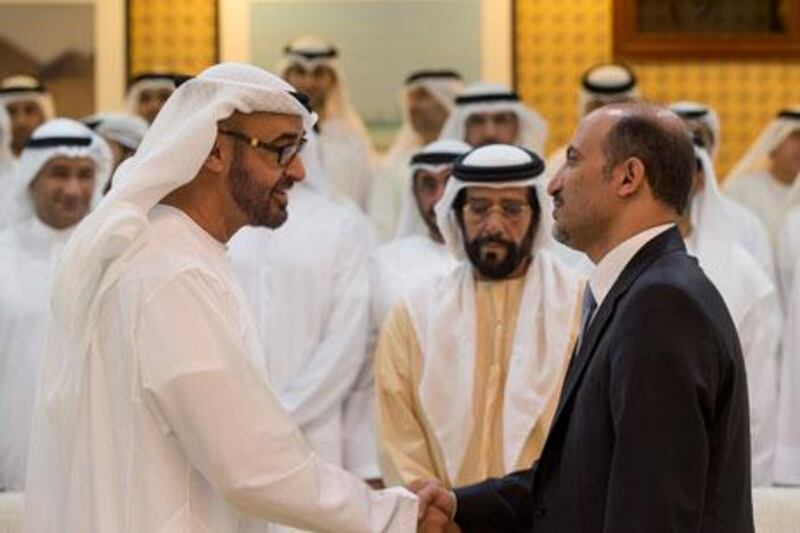ABU DHABI // Michael Green knows all about the pain of failure in philanthropy – and the valuable lessons that can be drawn from it.
After the bloody Romanian revolution of December 1989 left thousands orphaned, Mr Green embarked on a mission to bring smiles back to the faces of the traumatised children by providing them with new play sets.
After a two-day drive with vans filled with supplies, he and a group of friends moved between orphanages, setting up the equipment.
“It was a great trip,” Mr Green told the majlis of Mohammed bin Zayed, Crown Prince of Abu Dhabi and Deputy Supreme Commander of the Armed Forces, on Monday night.
But on their last night after a week of work, he returned to the places where they had installed the playground equipment. At one of the orphanages, he found it had been ripped from the ground.
“I cannot exaggerate how terrifying that was,” he said. “We made a lot of preparations. We were not there on a holiday, we were there to really help people.”
Mr Green, an expert on philanthropy and social innovation from London, said the incident had been too painful to talk about at the time, but he later regretted his silence.
“We need to think and talk about failure,” he said. “You can learn more from failure than success.”
Mr Green said failure was often an alien concept among philanthropists, which raised the question of whether they thought they could not fail, did not talk about it, or were simply unwilling to take risks.
His interest led him to take a job with the British government, where he believed he could make a real difference – a belief that was also disappointing.
“Government always struggles to innovate and take risks,” Mr Green said. “Philanthropists do things government cannot do. It has to come with the risk of failure.”
He named five great philanthropists, the first of whom was Ted Turner, the founder of CNN who donated US$1 billion (Dh3.67bn) to UN agencies and urged other rich Americans to become philanthropic.
One of those was Bill Gates, the founder of Microsoft, who started a foundation with his wife, Melinda.
Mo Ibrahim, a Briton of Sudanese origin who promotes good governance in Africa, was next on the list.
In 2007, Mr Ibrahim offered $5 million to former African leaders who had best helped their citizens. Three have so far been deemed worthy.
The final two were Ronald Owen Perelman, the US businessman known for his determination, and Peter Thiel, who co-founded PayPal.
“Thiel wanted to teach people that if they had a great idea to do it now,” he said. “If the government has to do conventional things, shouldn’t philanthropists take risks?”
He concluded by telling majlis guests of his new award, the Heroic Failure Prize in Philanthropy.
“It is an important legacy for all,” Mr Green said. “No one will make the same mistake.”






